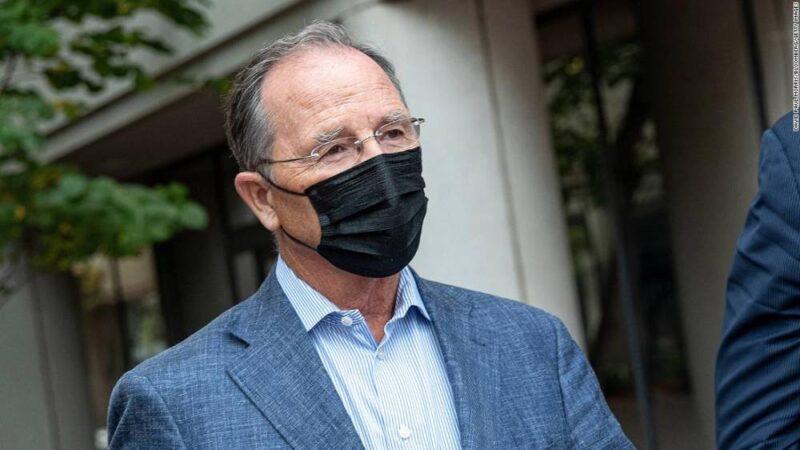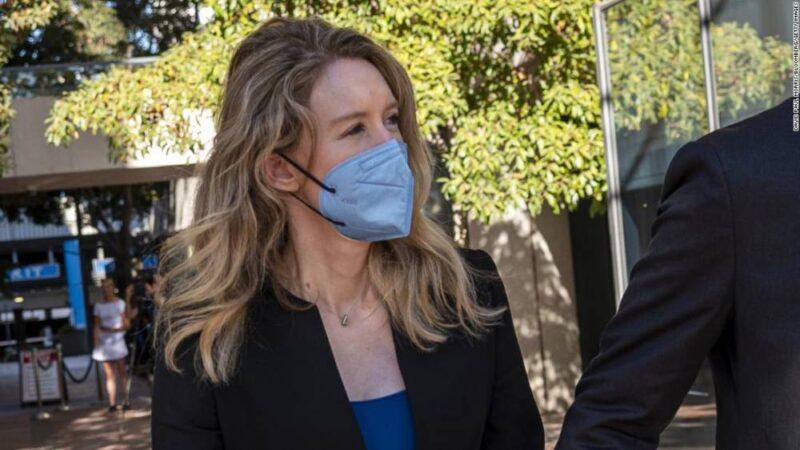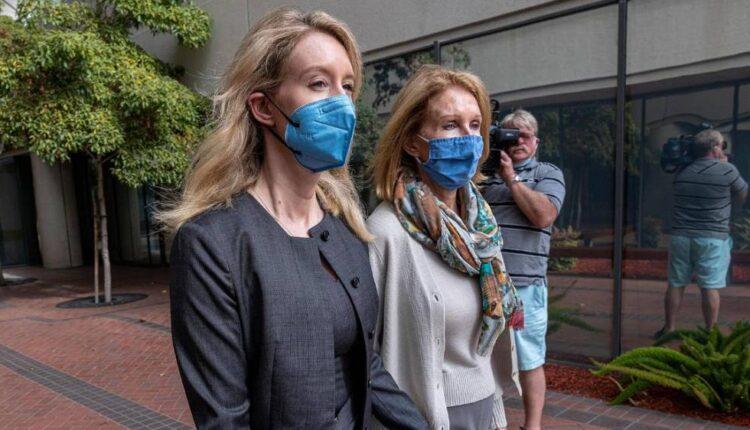(CNN Business)This week in the criminal trial of Theranos founder Elizabeth Holmes, jurors heard from a second former lab director of the blood-testing startup, former executives of the two major retailers that inked deals with the failed company, as well as the beginning of testimony from a former employee who was involved in its critical Walgreens partnership and device demonstrations.
Holmes, once hailed as the next Steve Jobs, is facing a dozen federal fraud charges over allegations that she knowingly misled investors, doctors, and patients about her company’s blood testing capabilities in order to take their money. Holmes has pleaded not guilty and faces up to 20 years in prison. Theranos was once valued at $9 billion, with investors and partners taken by the promise that its technology could efficiently test for conditions like cancer and diabetes with just a few drops of blood taken by finger stick. But once Wall Street Journal reporter John Carreyrou began poking holes into the capabilities of its technology and its blood testing methods, the company began to unravel.
The sixth week of the trial was the longest to date, with an additional day tacked on to the typical three-day court schedule. Here are some of the key — and most memorable — moments that happened this week:
A dermatologist took the stand
Read MoreIn one of the stranger testimonies to date, jurors heard from Dr. Sunil Dhawan, who served as a lab director for Theranos for less than a year. Adam Rosendorff, a pathologist who previously served in the role, testified earlier that he departed Theranos feeling “very skeptical” about the accuracy and reliability of its tests. He was closely involved in day-to-day operations and questioned over the course of six days earlier in the trial.

What we learned this week in the trial of Elizabeth HolmesDhawan, a dermatologist, had a different, lesser level of involvement. He testified Thursday that Theranos COO Ramesh “Sunny” Balwani — who had been a patient of his for roughly 15 years — asked him if he’d like to take on a role at Theranos as “a lab director, or a medical director” around the time Rosendorff was departing. Per an email exchange, Balwani told Dhawan “the time commitment is very minimal,” and noted that it would “be mostly an on call consulting role.” (Balwani is facing the same charges as Holmes. He has also pleaded not guilty and his trial is slated to begin early next year.)Dhawan said he did some research on Google to learn more about what Theranos did and then decided to accept the offer. He did very little work for the company, he testified, working just “five or 10” hours at Theranos between Nov, 2014 and early summer of 2015. He said he didn’t interact with any patients, doctors or Theranos employees during that time, and only visited Theranos a couple times. “I believe I went, and then I went again. And that was about it,” he said. During cross examination Friday, Holmes’ attorney pointed out that there was another contractor lab director at the time named Lynette Sawyer and questioned whether Dhawan “hadn’t really done much on an as needed basis” for Theranos because the company was relying on Sawyer. Dhawan testified: “I don’t know who they were calling.” Dhawan’s involvement ramped up slightly ahead of a September 2015 regulatory inspection. Dhawan testified he signed nearly 60 documents at the company’s request on a Saturday ahead of the inspection, which took place days later. He was in attendance for the first day of the two day inspection, he said, which was also the first time he met Holmes. Sometime shortly after, he stopped hearing from the company, he testified.
“Haters are everywhere”
Through witness testimonies, the government has sought to show jurors how Holmes charmed sophisticated business people but her company failed to meet its promises. At least one of the corporate executives who did business with Theranos continued to show support to Holmes after the initial damning Journal article, a point the defense tried to establish. “Haters are everywhere,” former Walgreens’ CFO Wade Miquelon said in an October 2015 email to Holmes two weeks after the article ran, according to a copy shown in the courtroom while he was being cross examined Wednesday by an attorney for Holmes.

Former Safeway CEO testifies in trial of Elizabeth HolmesMiquelon, who left Walgreens in 2014, first met Holmes in early 2010 and helped champion the partnership, which was struck that year. Walgreens paid Theranos $100 million as part of an agreement, and made a $40 million equity investment. Despite plans to launch nationwide, Theranos testing was only ever offered in 41 stores. (In a lawsuit, Walgreens sought to recover the funds, alleging a breach of contract. The parties settled August, 2017.)In a followup email days later, he told Holmes: “The universe has an odd way of preparing very special people for the even bigger missions ahead… Not always sensical [sic], but that’s how it goes for special people like you.” In an August 2016 email — sent after Theranos had voided two years of blood tests, Walgreens had ended its partnership, and Holmes had been banned from running a blood testing lab for two years — Miquelon commended Holmes on a recent CNN interview about the unveiling of a new blood testing machine and company strategy. He wrote: “Don’t stop working to help the world :)” In court, he testified: “I definitely cared about her very much and wanted her to be successful.”
Text message role play
Jurors heard a prosecutor and witnesses recite text messages between Holmes and Balwani, who were romantically involved, to illustrate how the two were privately corresponding about key moments in the company’s history, such as how the two felt when regulators were doing a laboratory audit in September 2015. The personal and professional relationship between Holmes and Balwani has been a recurring theme in the trial.Dhawan, Balwani’s dermatologist-turned-Theranos lab director, took turns reading aloud these texts with the prosecutor. One exchange: “Praying literally non stop,” Holmes wrote. “Going bad so far. Pray.” Balwani said. (This week’s reading aloud also included one text from Balwani that said: “love you too,” recited by former Walgreens executive Nimesh Jhaveri while he was being questioned.)
Safeway spent hundreds of millions on renovating its stores
Outside the presence of jurors, Holmes’ attorneys had fought to ensure they would not learn about the hundreds of millions of dollars that Safeway had spent renovating its stores in anticipation of bringing Theranos blood testing to its stores. While the judge was in agreement, Holmes’ attorneys failed to redact a document they entered as evidence, which referred to the retailer’s “275 million dollar remodel investment,” making it fair game for the prosecution to introduce during questioning of Safeway’s former CEO. This amount was less than the more than $350 million the prosecution referenced Safeway as having spent before the jury was present.Despite the heavy investment, the Theranos blood testing never got off the ground in the retailer’s stores.
‘A win for the press’
Holmes’ attorneys had been pushing to force one reporter to turn over his interview notes, and to keep another out of the courtroom. But on Thursday, a judge sided in favor of both journalists: Carreyrou, who broke the Theranos story while at the Journal, and Roger Parloff, the reporter who wrote a Fortune cover story on the company and later detailed how he had been misled.

Elizabeth Holmes put the reporter who broke the Theranos story on her witness list. His attorneys are calling it a "ruse"In a hearing held over Zoom simultaneously with the trial, Magistrate Judge Nathanael Cousins ruled that Carreyrou should be considered an expert witness, not a fact witness and therefore can’t be barred from the courtroom. Carreyrou’s attorney said the reporter has yet to be subpoenaed. “I’m not sure he’s going to be called,” Cousins said, but stopped short of saying Holmes was acting in bad faith by including him as a witness.
Either way, it won’t prevent Carreyrou from reporting for his podcast, “Bad Blood: The Final Chapter.” Cousins called the First Amendment needs “very high” in this circumstance. “This is a win for the press,” Carreyrou tweeted shortly after.Cousins also denied a motion from Holmes’ attorneys to compel Parloff to turn over interview notes in an effort to somehow prove that the reporter was biased and blamed his own errors on Holmes.
Source: edition.cnn.com

